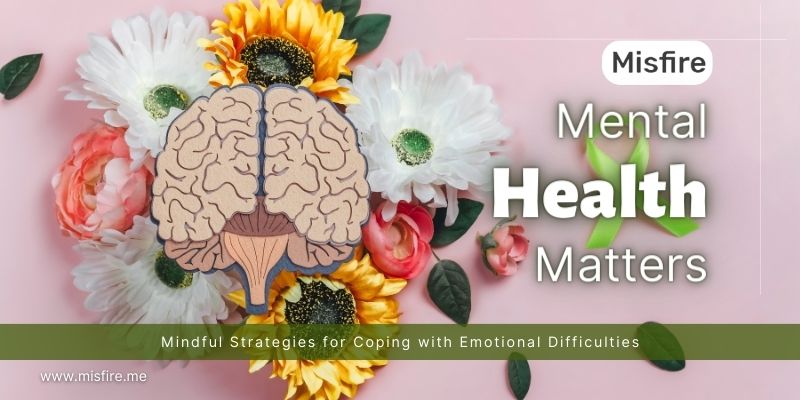Emotions are a vibrant part of the human experience. Whether it’s the joy of a happy moment, the sadness of loss, the anger of injustice, or the anxiety of the unknown, our emotions color our perceptions and influence our actions. Yet, managing difficult emotions can be a daunting task. In this article, we will explore practical and mindful strategies to help you navigate emotional turbulence and cultivate emotional well-being.
1. Acknowledge Your Emotions
The journey to emotional well-being begins with acknowledgment. Often, we attempt to suppress or ignore uncomfortable feelings like sadness or fear. Mindfulness encourages us to recognize and accept our emotions without judgment. By acknowledging what we feel, we open the door to healing and personal growth.
2. Practice Mindful Breathing
Mindful breathing is a powerful tool for calming the mind and regulating emotions. When emotions run high, pause and focus on your breath. Inhale slowly through your nose, hold for a few seconds, and then exhale gently through your mouth. This simple practice can soothe your nervous system and keep you grounded during emotional storms.
3. Observe Your Thoughts
Mindfulness teaches us to observe our thoughts without getting caught up in them. When challenging emotions arise, pay attention to the thoughts that accompany them. Are these thoughts helpful or harmful? By creating a mental distance from negative thought patterns, you can choose healthier, more constructive responses.
4. Engage in Self-Compassion
During emotional struggles, it’s crucial to be kind to yourself. Treat yourself with the same care and understanding that you would offer a close friend. Recognize that everyone experiences difficulties, and it’s okay to feel vulnerable. Self-compassion builds resilience and strengthens your emotional core.
5. Connect with the Present Moment
Emotions often drag us into the past (regret) or the future (anxiety). Mindfulness invites us to anchor ourselves in the present moment. Engage your senses fully—feel the warmth of sunlight on your skin, savor the taste of your morning coffee, listen to the sounds around you. Grounding yourself in the now can significantly reduce emotional overwhelm.
6. Cultivate Gratitude
Gratitude can transform your emotional landscape. By regularly expressing gratitude for small moments, relationships, and experiences, you shift your focus from what’s lacking to what you have. This practice fosters a positive mindset and helps counterbalance difficult emotions.
7. Seek Professional Support
Mindful approaches work wonderfully alongside professional help. If emotional challenges persist, consider seeking therapy or counseling. A trained therapist can guide you through mindfulness techniques tailored to your specific needs, providing valuable support on your journey. Additionally, exploring available mental health resources can further assist you in finding the right support and tools for your emotional well-being.
Conclusion
Mindful strategies empower us to face emotional challenges with grace and resilience. By practicing self-awareness, compassion, and staying present, we can transform difficult emotions into opportunities for growth and healing.
Remember, it’s okay to seek support when you need it. You are not alone on this journey. Embrace these mindful practices, and take the first step towards a healthier, more balanced emotional life.

